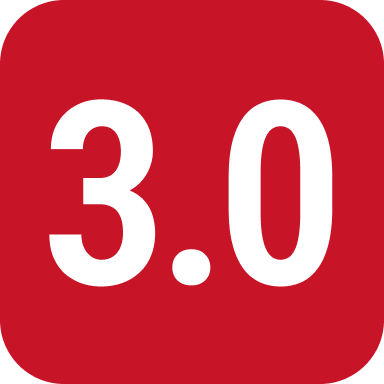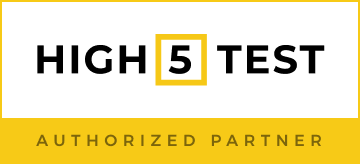Both HIGH5 strengths test and CliftonStrengths are assessments that helped millions of people be at their best. So what sets them apart?
HIGH5
Clifton Strengths
What it measures
Strengths
Talent themes
Time to complete
15 min
45 min
Development insights
What to watch out for
Career applications
Dedicated team report
Interpersonal analytics
360-degree peer review
Progress tracking

The Strengths Deployment Inventory offers many incredible benefits to those who utilize it. The SDI Test allows individuals to unlock their hidden talents and build upon their abilities, thus reaching their goals and achieving more success.
However, many people are skeptical about this assessment, and strengths tests in general. They wonder: how can this test be useful if it is not administered by a physician?
Is it really worth my time and money? Are these tests even valid? While these initial concerns are understandable, they are based on a false understanding of the SDI and tests like it.
By better understanding what the SDI is and how it is useful, you can better implement a strength-based growth strategy and achieve more than you ever thought possible. In this article, we will discuss just that, and help you use your SDI results to improve your career and even personal life.
What is the Strengths Deployment Inventory (SDI)?
Before you commit to taking this assessment, try to get a background about what it tests for. The SDI is similar to most other self-assessment strength tests. It is subjective, and you must answer a series of questions related to your personality and abilities.
There is a wide variety of queries that could be asked on this test. For example, they may ask you about your work experiences, what makes you motivated, how you work with others, and other questions relation to your strengths.
The test’s job is to identify your top abilities and how they are applied to your daily life. It is often used by employers to identify their team’s strengths, and by new employees to kickstart their growth.
How Does the SDI Test Work?
As previously noted, the SDI test is a self-assessment. This means there are no right or wrong answers on the test. It all depends on your experiences, abilities, and personality.
You will be asked a series of questions that are related to your work experiences and personality. Depending on how you respond to these questions, the test will match up some strengths to your inputs.
The assessment has a long list of strengths they test you for, but they are mostly focused on testing soft skills rather than technical abilities. After you take the test, you will be given a thorough report on your abilities. This report will include your top strengths, overused strengths, motives, and additional insights as well.
What Does Strengths Deployment Inventory Show You?
One of the key benefits from taking the Strengths Deployment Inventory test is getting to know yourself (especially your positive qualities) better. The test shows you an immense amount about your personality, from what your top strengths are to what your overused skills are. Here are just a few examples of what this test will show you:
Motives
Motives are the thoughts and goals that give you the passion to keep pushing forward toward your dreams, even when times are tough. Motives play a key role in your career and personality. The SDI test will help you uncover what your main sources of motivation are and how you can use them in different settings.
Conflict
No matter how hard you try to avoid them, it is impossible to never have conflicts. The results from this assessment will show you how your behavior changes during conflict or times of high pressure. This can help you identify the new strategies you should apply to decision making when under pressure.
Strengths
It is absolutely crucial to know your strengths if you want to have long term success in any career. Understanding your strengths thoroughly gives you an incredible advantage over other employees and leaders. This assessment tests you for 28 extremely important abilities. The test also gives you information on how your motives contribute to your strengths.
Overdone Strengths
There is such a thing as too much of a good thing. And unfortunately, overusing your strengths does have negative consequences. The test will find whether you push some strengths to the extreme. From there, you can find ways to prevent the overuse of these strengths and how to overcome the over-application of these strengths.
Improve team productivity
By knowing your strengths, motives, overdone abilities, and more, you can learn a lot about your team. This information allows teams to better understand how they work best and which tasks are best suited to who. As such, they can become more efficient in delegating tasks and thus become far more efficient. Knowing and building upon your strengths also boosts confidence, communication, positivity, and other key qualities.
What Does the SDI Test Results Look Like?
Shen considering taking the Strength Deployment Inventory test, it is useful to understand what the results mean. The results will be represented through colors, each representing a different overarching type of personality. Along with each personality, there is a distinct motivation. Here is the overview of your potential results:
Altruistic-Nurturing (Blue) Motivation:
Individuals who are altruistic and nurturing derive the most satisfaction from helping others instead of themselves. They are selfless and kind, and perform acts of kindness without expecting anything in return. They are genuine, caring, compassionate, selfless, hopeful, trusting, emotional, and loyal.
Assertive-Directing (Red) Motivation:
Those who get the assertive directing result tend to be quite competitive and can be good leaders. They seek accomplishment and success. These individuals are confident, great organizers, bold, risk takers, often entrepreneurial, decisive decision makers, persuasive, and sometimes forceful.
Analytical-Autonomizing (Green) Motivation:
If your results list you as an analytical autonomizing individual, then you will likely be a very organized and orderly person. These types of individuals are data-oriented, principled, clear-headed, methodical, and self-sufficient. They prefer independence over working with others and tend to be introverted.
Flexible-Cohering (Hub) Motivation:
Flexible-cohering individuals truly enjoy being with others, and are often described as “people-oriented people.” They are great communicators, social, outgoing, curious, great negotiators, tolerant, open to change, and great speakers.
Assertive-Nurturing (Red-Blue). Motivation:
A result of assertive-nurturing means you can be dominant and assertive while still being focused on what others need above your own needs. Many coaches and leaders have this result. These individuals are helpful, team-oriented, decisive, great leaders, and have the best interests of the team at heart.
For Whom is the SDI Test?
Anyone can take the SDI test. It offers benefits that are useful to nearly any individual. Whether you are an executive of a Fortune 500 company or a student, knowing your strengths and motives is extremely useful.
Even large teams use this test to improve productivity and boost success. However, the test is more useful to some than others.
Students are perhaps the biggest benefactors of tests like the SDI. If you take this assessment as a student, you can gain tremendous insights into your potential career and future. It can give you a much-needed boost in confidence and help better prepare you for future job interviews.
Additionally, those who have lost their jobs, have just started a new job and are nervous, plus those who are disengaged could all benefits tremendously from taking the SDI assessment.
Like with students, the test will give you clarity and confidence. It can help your self-worth rise and boost your positivity, engagement, and productivity.
How Long Does It Take To Finish the SDI Test?
Test makers for assessments such as the SDI are aware people have extremely busy schedules. This is why the test was designed to be taken in a single sitting, and is easy to fit into new key anyone’s schedule.
On average, it will take between 15 and 20 minutes for you to finish, although it depends on the individual.
What Does the Strength Deployment Inventory Cost?
The Strength Deployment Inventory is one of the most in-depth strengths assessments available on the internet, with thousands of people trusting it for results. The fee you pay to take the test is relatively low, too.
The organization offers scalable pricing, so cost depends on your organization’s size. The launch or small team plan is $9/month per person or $119/user annually. The scale plan is for slightly bigger teams and is $8/month per user or $90/user annually.
If you have a large team or have special needs for your organization, select the Enterprising option. This price is custom, so you will need to reach out to the SDI team for a quote.
Who developed the Strength Deployment Inventory?
The Strengths Deployment Inventory was developed by psychologist Dr. Elias Porter. He created the outline for the test in 1960. He was a colleague of Dr. Carl Rogers and a leader in positive psychology research.
Dr. Porter’s wife gave him the idea of color coding the results, which he did. He first sold the tests for just $1 each. Over time, more and more people took it and were satisfied with the results.
He eventually sold the to Dr. Tim Scudder. Dr. Scudder continued the research Dr. Porter started and created the Strengths Deployment Inventory 2.0, which places a further emphasis on relationships. Dr. Scudder eventually rebranded the company into Core Strengths, which it is called to this day.
Disclaimer: StrengthsTest does not intend to replicate or to substitute the Strength Deployment Inventory test as both tests follow different methodologies, yet bring value in similar ways. Both tests help test takers be more aware of their own personalities. StrengthsTest does not dispute or diminish the value of the Strength Deployment Inventory test and encourages test takers to go through both assessments. If you have any questions, please do not hesitate to reach us.
Strength Deployment Inventory test and SDI test or assessment logos are trademarks of Situational Strengths test corporation. All other trademarks not owned by StrengthsTest that appear on this website are the property of their respective owners, who may or may not be affiliated with StrengthsTest.


